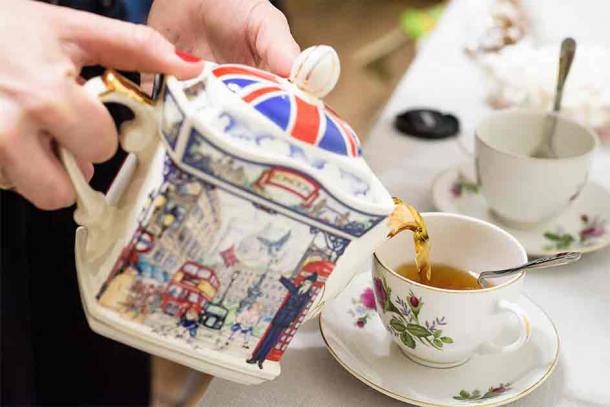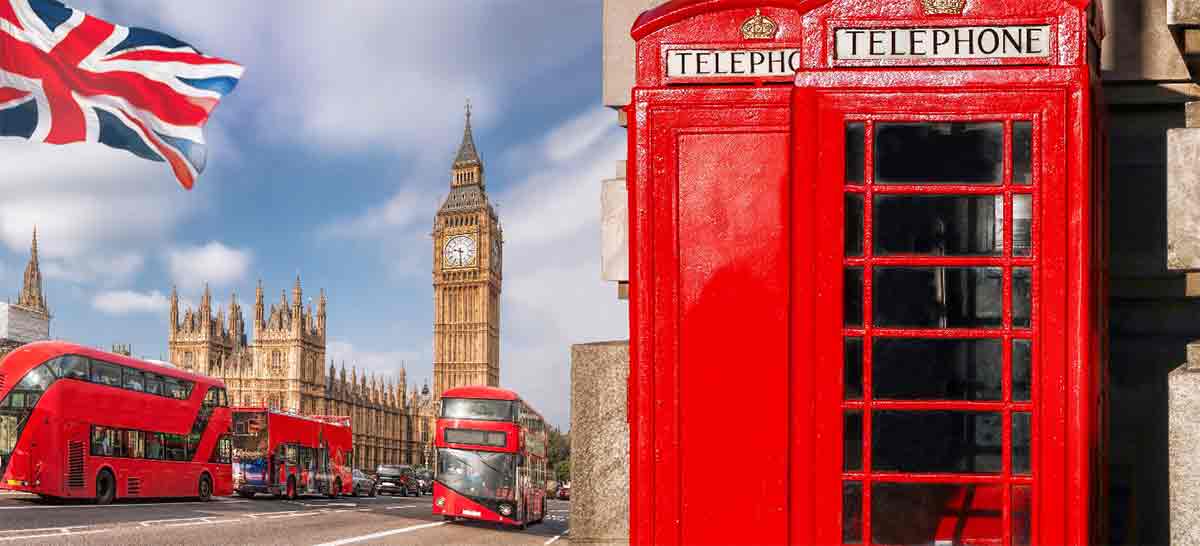Britain's “Britishness” is Largely an Import Story
Britain's history is a vibrant tapestry woven with threads of diverse cultures, a reality seemingly overlooked by some nationalist standpoints. Contrary to the cosmopolitan makeup of the country, these notions perhaps expose an ignorance of history, particularly within Britain, a nation profoundly shaped by millennia of immigration of one kind or another.
This was clearly portrayed by Robert Winder's 2004 seminal work, Bloody Foreigners, which challenged traditional notions of British homogeneity. Winder's analysis of historic waves of immigration revealed Britain's deep-rooted cultural exchange, unveiling beloved and supposedly “British” aspects as cultural imports integrated into everyday life.
Immigration is Integral to Britain’s “British” Identity
Britain has always been a melting pot of cultures. One seminal instance dates back to the arrival of the Roman invaders in 43 AD, with Roman soldiers and slaves hailing from all over the Roman Empire. Although largely usurping the existing tribes of their territories, according to Bryan Sykes, renowned geneticist in his Blood of the Isles, the genetic footprint was minimal. But their presence infused the island with diverse languages and traditions, while the legacy of Roman rule remains evident in Britain's infrastructure, language and legal system even today.
Successive waves of migrants, more, or less welcome, have left a lasting mark on British culture and genetic makeup. After the Romans came Jutes, Saxons and Angles, amongst others from the mainland.
Vikings colonized and settled in Britain from late 8th to early 11th centuries, the Norman Conquest in 1066 introduced French influences, while Huguenot refugees fleeing religious persecution in France in the 16th century brought new skills and industries to Britain.
More recent contributions come from immigrants from West Africa, the Caribbean, South Asia, and other regions. The transatlantic slave trade between the late 16th to early 19th centuries had a profound impact on British culture.
The post-World War II Windrush Generation from the Caribbean also played a pivotal role in rebuilding the economy and infrastructure, bringing exotic influences including food and music from across the Atlantic.
- Anglo-Saxon Migration Created a ‘European’ Medieval England
- Study Finds Huge Undetected Migration Wave to Prehistoric Britain

Despite being from China, tea has become a British national obsession. (greentellect / Adobe Stock)
Surprising Imports: Exploring Britain's Multifaceted Cultural Roots
As a result, many aspects perceived as quintessentially “British” have their roots in other cultures.
The beloved cup of tea, for example, was introduced to Britain from China in the 17th century and quickly became a national obsession. Similarly, the tradition of eating fish and chips, often associated with British seaside towns, was brought to Britain by Jewish immigrants seeking refuge from religious persecution in Portugal and Spain in the 17th century. Pubs have evolved out of Roman taverns, while the English language is a blended beauty from all the many influences brought over by successive waves of immigration.
Even the current British royal family, representing the epitome of Britishness, is itself an import. The House of Windsor was originally known as the House of Saxe-Coburg and Gotha, due to the marriage between Queen Victoria and her German cousin Albert. King George V changed it during World War I to distance the monarchy from its German roots. Meanwhile the impact of the slave trade and the Windrush Generation persists in Britain’s multicultural communities and cultural expressions such as reggae music and Caribbean cuisine.
Britain's multicultural heritage is woven into the fabric of everyday life. Immigration and diversity are not recent phenomena but fundamental aspects of British national identity that have enriched Britain for centuries.
Top image: London symbols of British culture with Big Ben, a double-decker bus and Red Phone Booths. Source: Tomas Marek/ Adobe Stock
References
Sykes, Bryan, 2006. ‘Blood of the Isles’. Bantam Press.
Winder, R., 2013. ‘Bloody Foreigners: The Story of Immigration to Britain’. Abacus

















Comments
Words like “diversity” and “enrichment” among many other postmodern tropes are inherently anti-white. Kali Yuga is real. We can't stop this madness but we can liberate ourselves and help others realize but keep in mind only people who can will. Most people are sheep. This is culture war but it's an ontological reality. As above, so below.
The Elder
The UK refugee program could bring in persecuted Indian Christians, who can even be killed by Hindu nationalists. Does it?
No. They're Christians.
For the purposes of claroty on my comment below:
The reason for a modern program of non-European immigration into the UK is to bring in non-Christians. i know this for a fact. I know those behind it. And I mention them constantly.
Skin colour is irrelevant. Don't bring it up. Once again, the target is Christianity.
Anti-white sentiment is just a cover. Those ultimately behind it have no real interest in the colour of your skin. They just want you to think they do. They shall happily encourage white nationalism in the shadows because it serves their purpose of division for conquest and can cause a useful backlash.
What they are really targeting is European Christianity. Articles like this one can come from those who know full well what they are doing and those who don't. The latter are like white nationalists, in being unwitting spreaders of half-truth.
I know that whenever I see the name of this author we're generally in for another, less-than-subtle, anti-white, anti-western, anti-men bashing session. She can't help herself.
And I'm female btw so I'm not just repelled by her obvious disdain for the people, cultures and processes that have brought her into this world.
It's absolutely par for the course that academia is now shoehorning such pieces into everything. As Brits, we know we're a diverse bunch but longstanding, native Brits contributions TO Britain is always, always underplayed and there are now so many agendas in academic writing, particularly assaults from afar and from many people who, even if based in Britain, rarely seem to see life across this island from anything other than a Leftwing, elite-presenting, finger-wagging academic culture.
It's a No, Cecilia. Not a no to how you choose to write or how you conduct your thoughts. It's simply a personal No to your endless underlying wokery and how you drain any fun out of this website.
As a Brit in Britain, I live here and always will, and you don't.
Pages